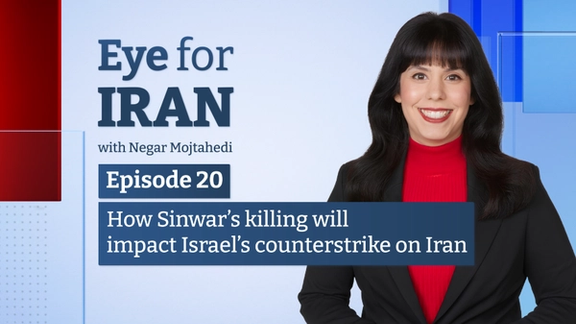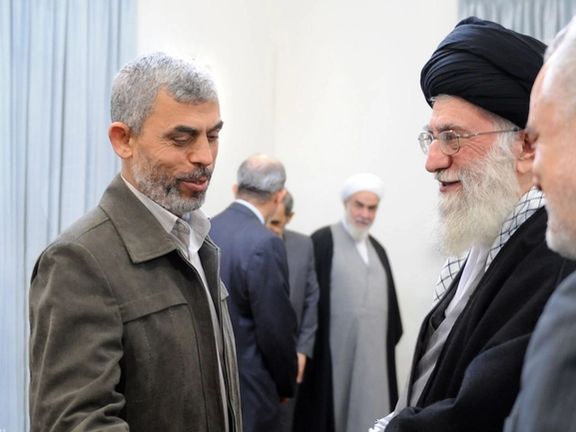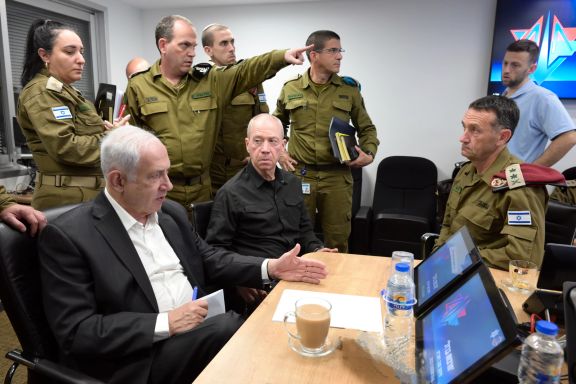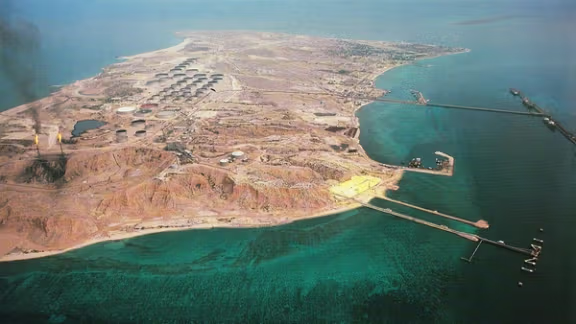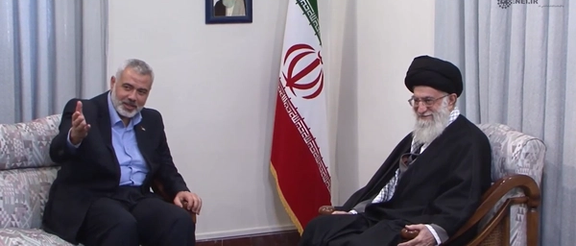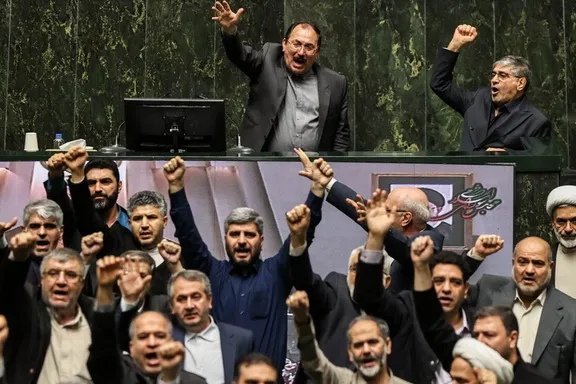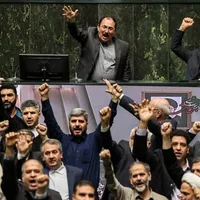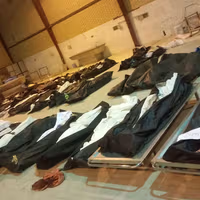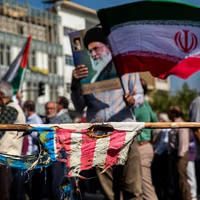As Iran’s Foreign Minister conducted regional tours to strengthen ties with Arab states, Iran's leadership is reportedly sending backchannel messages to the US, urging them to convince Israel to scale back its counterstrike, according to an Israeli reporter.
Since July, Israel has targeted some of the most prominent figures in Iran’s proxy network. On July 31, Hamas political leader Ismail Haniyeh was killed in Tehran, an operation widely attributed to Israel, though they have not officially confirmed or denied it. Last month, Hezbollah leader Hassan Nasrallah was eliminated in Beirut, a strike confirmed by Prime Minister Benjamin Netanyahu. Most recently, Yahya Sinwar was taken out in Gaza.
Iran’s proxies are not out, but severely weakened with a significant decrease in its capabilities, and this may push the Iranian establishment to want de-escalation for its own survival, says Stein.
“Iran is conveying messages that if response if limited they won’t respond to Israel. Iran is trying to scale down the response to Israel,” he adds.
Israel's Counterstrike on Iran
Stein characterized the Biden administration as being “okay” with Israel’s plan to attack Iran after it launched a barrage of ballistic missiles on Oct 1st in retaliation for the killing of Nasrallah and Haniyeh.
US President Joe Biden says he has a good understanding of how and when Israel plans to respond to Iran, making the remarks Friday while being pressed by reporters during a visit to Germany.
Biden declined to share any details, but Stein, based on his intelligence as a journalist in Israel, believes the attack will be limited to military strikes.
The Iranians may be fearful after Sinwar’s death and hope to signal to the Americans that they will not retaliate if the Israeli’s stay away from striking oil, gas and nuclear sites, says Stein.
Persian Gulf region Arab states are also lobbying Washington to stop Israel from attacking Iran’s oil sites because they are concerned for their own oil facilities.
Israel's Prime Minister has repeatedly said all options are on the tables.
After reports surfaced of military targets, Israel’s Energy minister Eli Cohen, said on Friday that Israel was "committed to preventing the Iranians from acquiring nuclear weapons, and therefore, all options are on the table, including attacking nuclear facilities".
While Benjamin Netanyahu has sent bold messages to the Iranian establishment for decades, politics may hold him back for how far he can go.
“For Netanyahu, Iran is the main enemy of Israel. He always talked about the nuclear, nuclear, nuclear but in the end also Netanyahu knows what the limits are,” says Stein.
“The idea that Netanyahu will now use the opportunity to go for the nuclear sites and do what he's talking about for 15 years, I have a bit doubt it, but let's see,” he adds.
Sinwar’s death may delay – not prevent - Israel’s planned reprisal in Iran, according to Stein.
He believes it may cause Israel to focus on Gaza with their being an opportunity with no clear leadership in place to push for a ceasefire and the release of the remaining 101 hostages.
When asked about his behind-the-scenes conversations with Israeli government officials on this topic, he said some of them believe the Gazan people will revolt against Hamas.
“I think some of Israeli officials are surprised that people in Gaza haven't revolted yet. But again, the end it's the Hamas civil structure that is still operating over there. That's why the civilians need them. If this collapses and other things collapse, then things change.”
A moment Israelis have been waiting for
Stein recalled the moment when he found out about Sinwar’s death, describing the mood among Israeli's as "complete happiness."
“In my neighborhood people went out with alcohol bottles and whiskey and poured glasses. We always waited for this moment and it finally arrived.”
As an architect of the Oct 7 killing of more than 1,000 Israeli citizens that sparked the war in Gaza, Sinwar was also responsible for negotiations with other political leaders on the hostages, and controlled Hamas’ day-to-day operations. Even if a new leader is named, that person will not have specific control over the hostages, says Steins.
With the absence of a clear leader, Israel's strategy is to provide amnesty to individuals – whether they are Islamic Jihad or Hamas – to surrender the hostages and walk free, said Stein about Netanyahu ‘s next move.
“The dictator is dead. There’s a chance individuals will try to save their lives by releasing hostages. This is the idea right now” says Stein.
To find out how Israelis are feeling about a potential strike on Iran, and much more from Stein's conversation on Eye for Iran, Watch the full episode on YouTube or listen on Spotify, Castbox, Apple or Amazon.
